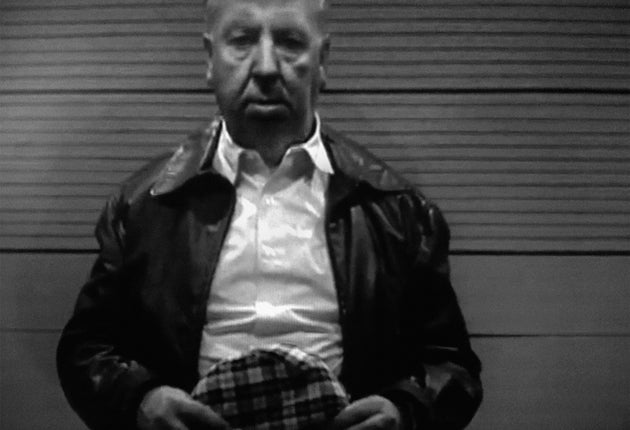Double Take, Johan Grimonprez, 80 mins, (12A)
The master of suspense and his doppelgänger offer twice the fun

Your support helps us to tell the story
From reproductive rights to climate change to Big Tech, The Independent is on the ground when the story is developing. Whether it's investigating the financials of Elon Musk's pro-Trump PAC or producing our latest documentary, 'The A Word', which shines a light on the American women fighting for reproductive rights, we know how important it is to parse out the facts from the messaging.
At such a critical moment in US history, we need reporters on the ground. Your donation allows us to keep sending journalists to speak to both sides of the story.
The Independent is trusted by Americans across the entire political spectrum. And unlike many other quality news outlets, we choose not to lock Americans out of our reporting and analysis with paywalls. We believe quality journalism should be available to everyone, paid for by those who can afford it.
Your support makes all the difference.How did a portly, dapper gent from Leytonstone – resembling the butler who did it in the library with a rope – manage to infiltrate not just Hollywood but American culture – and indeed, the very psyche of cinema?
To achieve such a feat, Alfred Hitchcock must have been some kind of double agent, like the conspirators and spooks who people his films. That's the implicit premise of Johan Grimonprez's Double Take – part documentary, part essay, part prankish fantasy, and altogether a wonderfully mischievous provocation.
Hitchcock's films reveal an intense fascination with doppelgängers, dead ringers and mistaken identities. But lovers of his big-screen oeuvre might not realise just how far the preoccupation went. Double Take unearths a selection of the maestro's waggish introductions to his 1950s TV series Alfred Hitchcock Presents, in which the obsession runs riot: donning a variety of comedy hats, Hitchcock pretends to be his own lookalike, or a man on an identity parade who's suspected of being Hitchcock, or even Alfred's twin brother operating a Hitchcock puppet.
That's only the start of Grimonprez's essay on doubling. Double Take also recounts an apocryphal tale, based on a Borges anecdote, in which Hitchcock meets his own future self while shooting The Birds. "They say that if you meet your double," intones the familiar plummed-up cockney voice, "you should kill him". But which Hitch should kill which? This tale is narrated, in pitch-perfect Hitchcock tones, by soundalike Mark Perry of BBC's Dead Ringers. The impersonations don't stop there. We also meet another rotund Englishman, the late Ron Burrage, a professional Hitchcock double who might well have encountered the original, since he used to work at Claridge's, a hotel frequented by the director. (Neither man, as far as we know, attempted to kill the other – but then Burrage was really Hitchcock's twin only if viewed from the side.)
Meanwhile, Hitchcock's later films are placed in parallel with the course of the Cold War, a feud between rival twin nations – with the Russian premier Nikita Khrushchev himself a portly, flamboyant showman, the Kremlin his Universal Studios. Then there's the Cold War between cinema and television, which in the 1950s threatened to put its older sibling out of business. Hitchcock loftily voiced his contempt for the flashy new medium in his American TV show, berating his own sponsors and their accursed commercial break – the enemy of narrative continuity, and therefore of suspense.
Belgian film-maker Grimonprez is known as a gallery artist and an academic, but Double Take is not a theory film, nor is it out to make a specific point. Instead, Grimonprez teases us into drawing our own conclusions from his several interlaced strands – clips from Hitchcock's films and personal appearances, and from newsreel and TV news. Also interspersed is a series of hair-raising ads for Folger's instant coffee, which aim to strike fear (of domestic inadequacy, straying husbands, divorce) into the heart of the Eisenhower-era housewife. It's a campaign of terror that makes Hitchcock's big-screen ploys look positively benign.
You don't have to be a fully paid-up Hitchcockian to appreciate the hugely entertaining Double Take – although, by reading modern history and the maestro's provocations side by side, Grimonprez conclusively shows that, whether we realise it or not, we're all Hitchcockians now.
Join our commenting forum
Join thought-provoking conversations, follow other Independent readers and see their replies
Comments